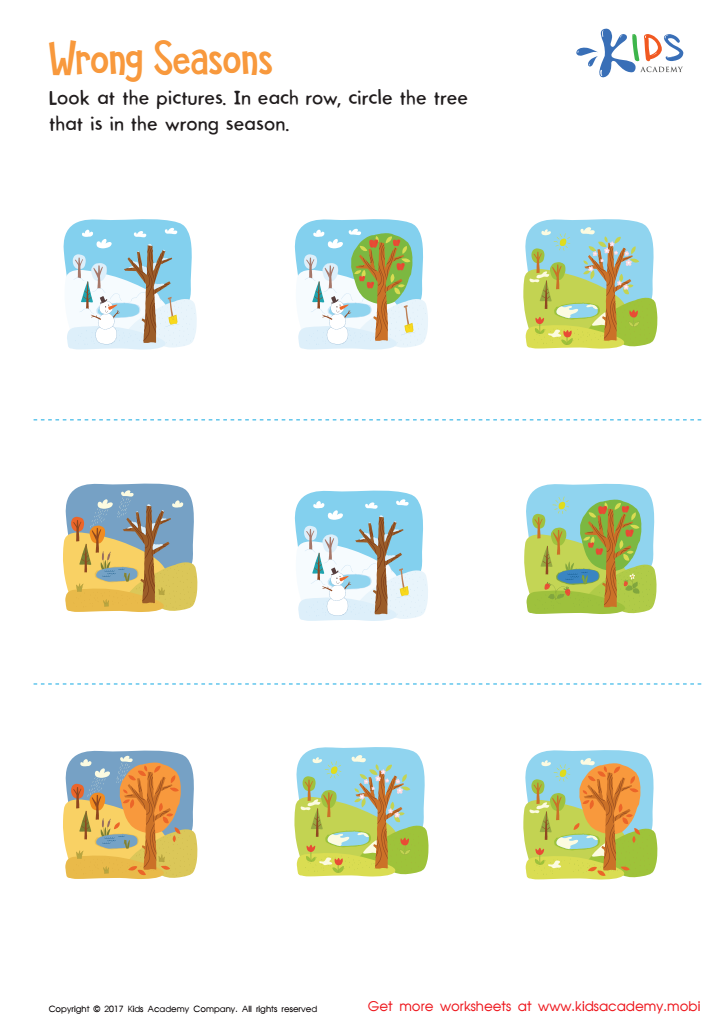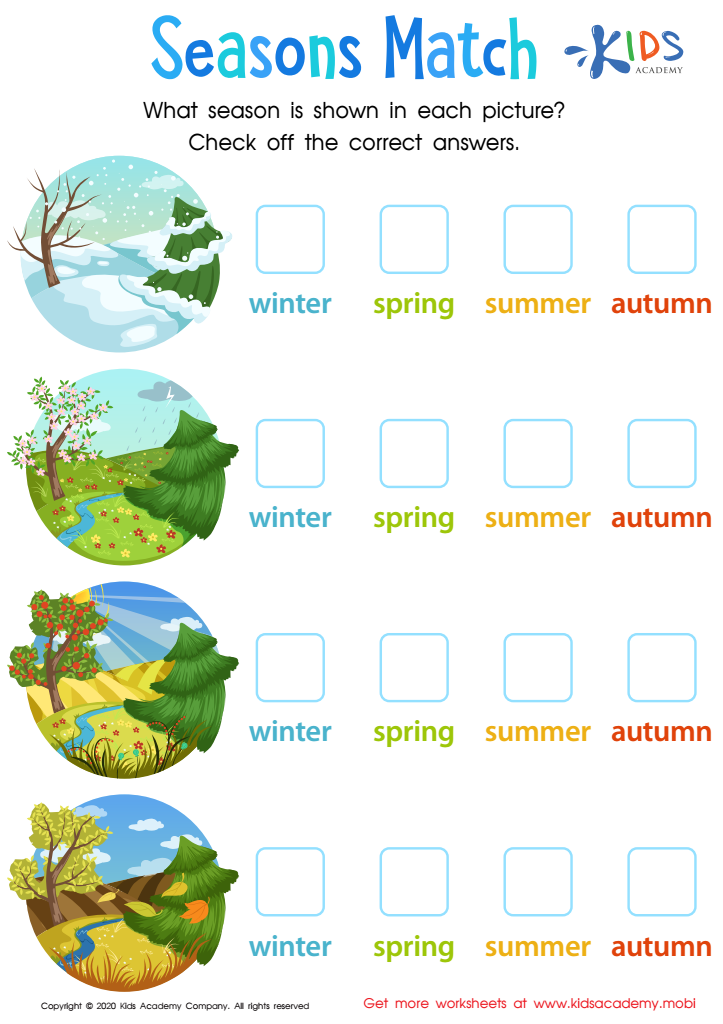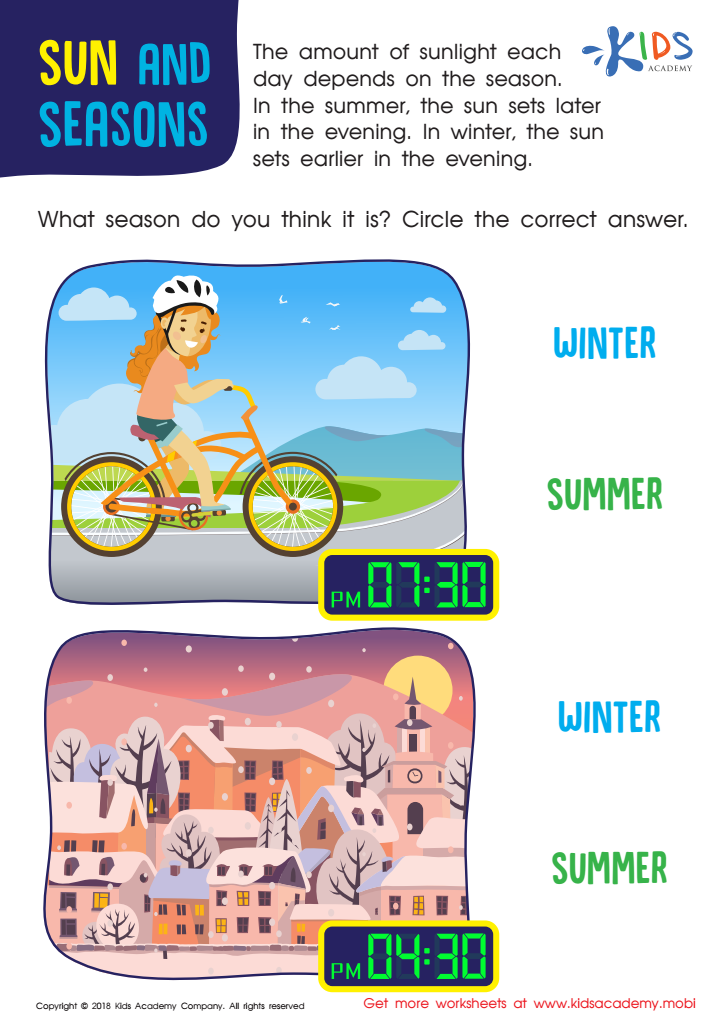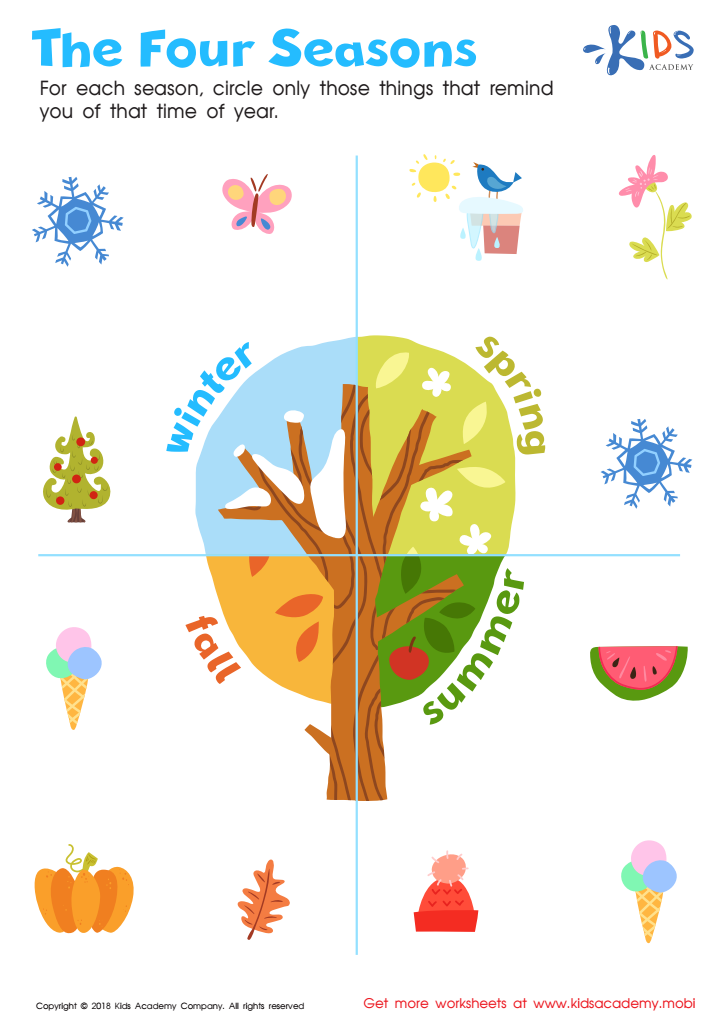Understanding seasons Normal Geography Worksheets for Ages 4-6
4 filtered results
-
From - To
Explore the wonders of the seasons with our "Understanding Seasons" geography worksheets, designed specifically for young learners aged 4-6. These engaging and visually appealing resources help children grasp the concept of seasonal changes, promoting curiosity about the world around them. With simple activities and captivating illustrations, kids will discover the unique characteristics of each season, including weather patterns and natural changes. Our worksheets encourage creativity and critical thinking while enhancing social studies skills. Perfect for home or classroom use, they provide a fun and educational way for children to connect with nature and understand the rhythm of the year.


Wrong Seasons Worksheet


Seasons Match Worksheet


Sun and Seasons Worksheet


The Four Seasons Worksheet
Understanding seasons and basic geography is crucial for young children's development, and it's essential for parents and teachers to engage with this topic.
Firstly, learning about seasons helps children grasp the changes in their environment. It fosters curiosity about nature, enabling them to observe differences in weather, plants, and animals throughout the year. Such observations build their observational skills and encourage a lifelong appreciation for the natural world.
Moreover, teaching basic geography helps children understand their place in the world. At ages 4-6, children are eager to explore; introducing them to concepts like landforms, bodies of water, and local landmarks cultivates awareness of their surroundings and strengthens their sense of belonging. It also aids in developing language skills, as they learn new vocabulary linked to geography and seasons, enriching their communication abilities.
Furthermore, understanding seasons and geography enhances social studies knowledge, enabling children to appreciate cultural festivals and traditions associated with different times of the year. Engaging in discussions about seasons and geography can promote critical thinking as children relate their experiences to what they learn, thereby creating a well-rounded educational foundation. In summary, it's vital for educators and parents to prioritize these topics for a comprehensive early learning experience.
 Assign to My Students
Assign to My Students














